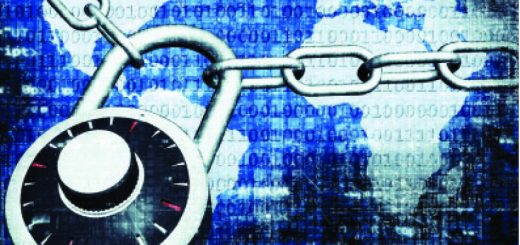Pandemic and So Much Changed -Fahmida Mehreen
In late December 2019, the world started to encounter a change that will leave its impact for the next many decades. The novel coronavirus disease 2019, more commonly addressed as COVID-19, was detected in China in late December 2019. According to the definition of World Health Organization (WHO), Coronavirus disease is an infectious disease caused by the SARS-CoV-2 virus. Anyone affected by this infection will suffer from mild to severe respiratory complications and may require special treatments. The virus is most likely to spread through liquid particles from the nose or mouth when coughed, sneezed, spoken, or even breathed. These tiny particles range from comparatively larger respiratory droplets to smaller aerosols. The first COVID-19 case in Bangladesh was detected on 08 March 2020 upon the arrival of some repatriates from Italy.
In order to prevent the virus from spreading, people from all across the world have been advised to follow specific safety guidelines in order to keep themselves and the people around them safe from the deadly disease. Such precautionary measures included wearing facemasks and face shields, washing hands or using alcohol-based hand rubs at frequent intervals, keeping a physical distance of at least 1 metre from others, avoiding mass public gatherings, covering mouth with a tissue or flexed elbow when sneezing or coughing, and staying isolated at home if any symptoms of infection were seen. In case of any discomfort, immediate medical assistance was advised to be sought. Over time, it has been seen that the most common symptoms of COVID-19 are a runny nose, cough, low-grade to high fever, sore throat, breathing distress, and other flu-like symptoms. However, people with any existing or underlying conditions like cardiovascular diseases, diabetes, chronic respiratory diseases, or cancer are more prone to develop serious illnesses. Hence, there is no alternative to awareness and protection.
Within one year from the start of this worldwide pandemic, researchers were successful in testing and marketing vaccines against this deadly disease. In late 2020, the preliminary clinical trial of COVID-19 vaccines started in the United Kingdom. Gradually with its success, the vaccines were made available in other countries. In Bangladesh, the first vaccine administration commenced on 27 January 2021, while mass vaccination started on 07 February 2021. Initially, the Oxford–AstraZeneca vaccine was the only COVID-19 vaccine authorized for emergency use from January to April 2021. The front liners and elderly citizens were among the first ones to receive the jabs. Soon, more and more people got vaccinated. The 4th dose of vaccination is currently being given. According to the statistics of daily news in Bangladesh, till December 2022, as many as 148,560,738 people have been vaccinated with the first dose, 125,670,627 people with the second dose, and 60,611,619 with the booster dose against COVID-19.
Now, over the two years of the pandemic, people’s lifestyle has changed to unimaginable limits. When the pandemic first broke out, people faced an immense challenge in ensuring their good health, keeping up with work, and earning enough to lead a stable life. Unfortunately, a lot of businesses shut down, making thousands of people jobless. Apart from the deadly virus, people were suffering from a lot more. Educational institutions were closed for a long time. With such a scary situation prevailing, people had no choice but to adapt to changes and embrace what’s called “the new normal” in order to survive. Many of the offices started remote working where employees had to work from home, making use of the resources they had as well as whatever help they may have received from their workplace. Simultaneously, online classes with the aid of Zoom, Google Classroom, and other platforms started for primary to tertiary education. Teachers, who spent years in teaching using a whiteboard and checking classwork copies, were now mandated to use PowerPoint presentations to teach children and use their computers, laptops, and tablets for checking students’ work. This, of course, brought a revolutionary change in the teaching methodologies, but it also challenged the teachers to invest their skills into something new. Some successfully coped up, and they continued to grow while many withered away. Physical school resumed in Bangladesh in September 2021. After almost two years of online schooling, students and teachers were back to the physical classroom. Nevertheless, some of the practices of online schooling are still in place, considering the benefits they bring. Many of the offices have permanently announced specific jobs to be carried out from home. Employees may go to the office if they have the need to, but there is no obligation like before. Some roles have completely been abolished. This flex-working option has, to some extent, improved employee motivation and led to improved performance. But, ensuring a proper work-life balance has become a new crunch because when working from home, the working hours are no longer confined by your presence in office space. Furthermore, with remote working being more in practice, people are expected to work on an urgent basis using their phones and the internet at any time, anywhere!
Along with these changes in education and work environments, people’s overall way of living has changed. Most people carry hand sanitizer and use it infrequently. Many new cosmetic and fast-moving consumer goods (FMCG) products were developed to meet the diverse needs of customers. Some people prefer gel, while others prefer alcohol spray, which is even better if it is fragrant. Even though wearing masks is no longer compulsory in most places, a large number of people are still keeping up with the habit. The practice of drinking warm drinks, especially tea with condiments, has become regular in many households. People are more into fitness and staying well so that if they come down with any sickness, they can beat it with their strong immune system. This health awareness has actually helped people fight COVID-19 even when they got infected. Now that they know about the importance of strong immunity, there is no way it can be ignored. The face of travel has changed big time. Passengers are required to be vaccinated before they travel. The need to test for COVID-19 has been relaxed in most countries by now if a traveller is fully vaccinated.
It is needless to say that this pandemic has caused a lot of damage to people’s lives. Not only has it taken loved ones away from many of us, but it has also left us with indefinite problems, the solution to which may be hard to find. The ones who got infected with COVID-19 are now encountering other side effects such as vertigo, weakness, brain fog, etc. The once-active workforce that lost their jobs during the pandemic may still be struggling to run their households. Students who have been absent from school for approximately two years are under enormous pressure to catch up with their classroom and social skills because their learning and development are no longer contained within the screens of their devices. As a result, people are putting forth effort in all spheres of life to filter out the negative effects of the pandemic and reap the greatest benefit from expedient innovations.
There is a long journey ahead. Just as we never imagined how a pandemic could shut down the whole world for years, we never know what lies ahead in the future. Yet, with all that we have learned the hard way from our experiences, we can hope to be more prepared to fight if a new test shows up. Let’s hope for the best and keep up the positive spirit that has brought us this far. We have made it through a tough time, and we will see better days.












Recent Comments